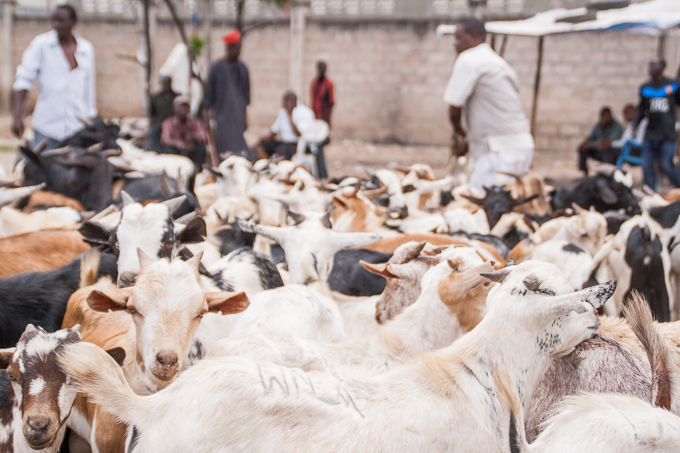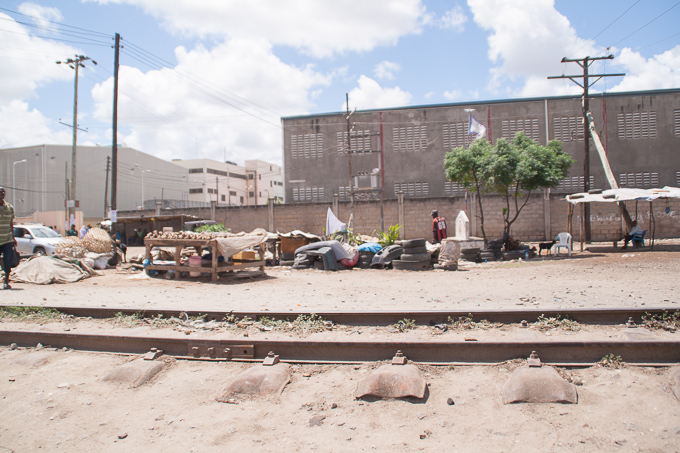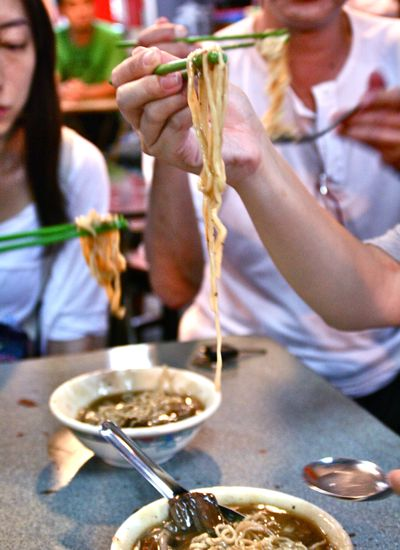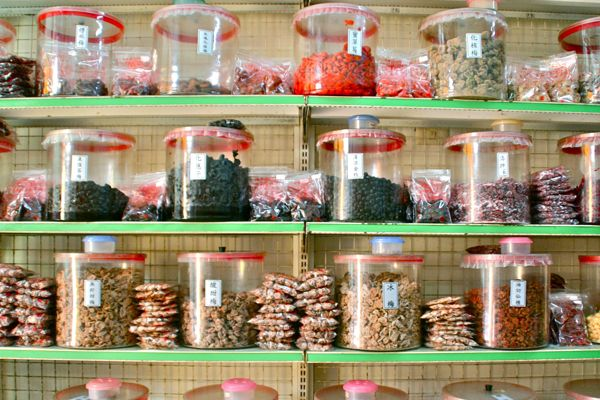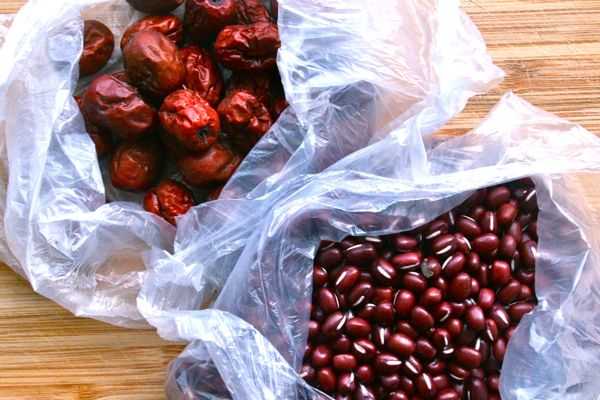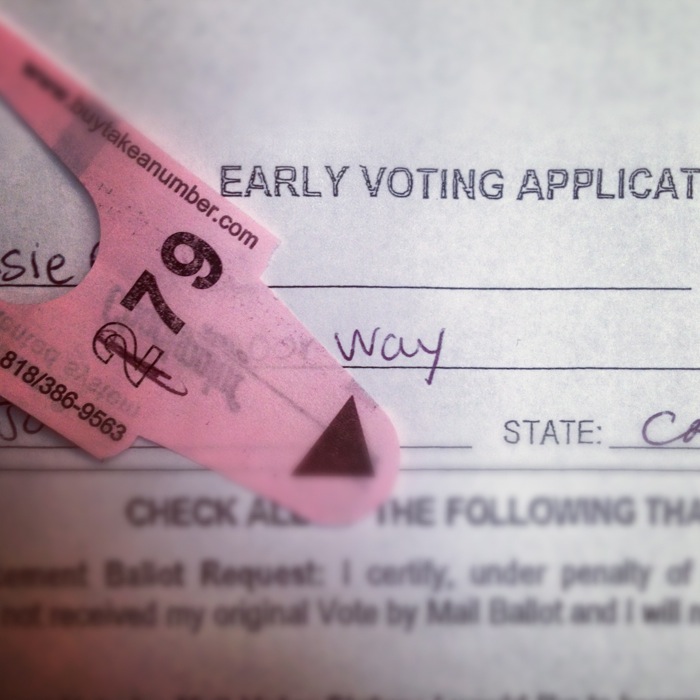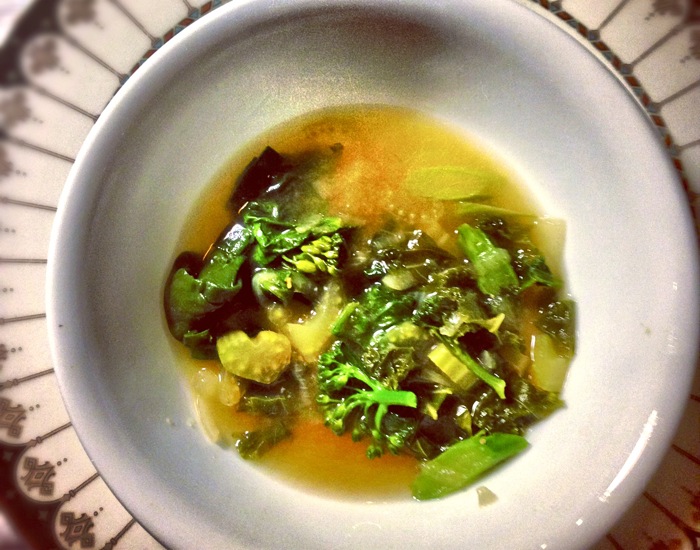(Before I get started, I warn you that I do talk about watching an animal get slaughtered. It’s not bloody nor is it traumatizing, but regardless I’ll let you know when I start writing about it)
Several weeks ago I found myself talking to a friend who told me about the one time she went to buy goat- a live goat- to get it slaughtered and butchered. I immediately asked how I could do this, too.
Don’t worry, I’m no American Psycho or anything. Rather, my sudden desire for a one-time alive, fresh, goat meat stems from a notion that our (American) culture has become so removed from the meat we eat that I needed at least once to experience this drastic sacrifice of life for food. There’s a strong disconnect in many parts of the world between a living, breathing, feathered or hoofed friend, and what we see on our plates- boneless, skinless, breaded, and fried. Western worlds are notorious for an over-consumption of meat products, and I believe it’s because many of us have lost sight of where our food comes from.
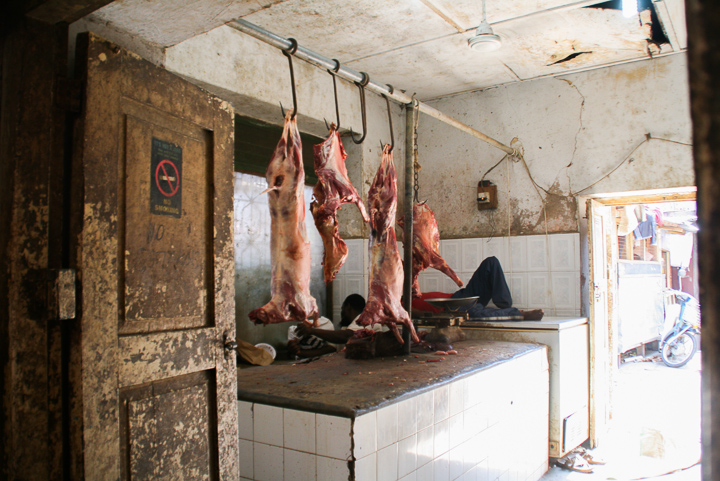 >> a butcher shop from zanzibar >>
>> a butcher shop from zanzibar >>
Living in China was the first time I saw carcasses, half animals crudely butchered and displayed for general consumption, without even a glass window to separate me from them. It. Whatever. And then there were the chickens, live chickens packed into cages at the wet market in China, prodded and poked and examined for their health, then taken behind a thin wall to be brought back out moments later with far fewer feathers and much more dead (this is also the place that gave us the bird flu, but let’s not get into that right now…).
So arrangements were made, and not long after I so quickly expressed my desire to go buy a live goat for slaughter, I found myself driving down a stretch of road that wound through Dar’s city center, past old German colonial buildings, past markets displaying huge round baskets of rice piled into pointy pyramids. We drove further than I have before, passing buildings and billboards that were likely ancient but completely new to me. Our friend, for the purpose of this post, named “A”, was our triumphant leader that morning. He sat in my back seat, a mug of tea in one hand and juggling a banana and orange in the other- as casually as if we were going to pick up a copy of the Sunday Times at the corner store.
By the time we reached the large Azam factory he had finished his breakfast fruit, and instructed us to make an upcoming right turn. Soon after we made a right, the road narrowed, and a subsequent right turn led us down a bumpy dirt road. I had no idea where we were, who knows if those streets even had names. But as soon as we hit dirt, our arrival was sensed. Young men flocked to our windows, waving for us to pull over. They knew we were there to buy something- we could have been in the market for anything- and whatever it was, they were willing to sell it to us.
“A” rapped on the windows from the inside. “Eh! EH! Go away!” he shouted, waving back towards the now-seemingly-thinner-than-usual glass. We parked in a less congested area, where “A” had “a guy”. That’s how it is in these foreign countries, isn’t it? You have a guy. A guy who knows a guy. A guy who can get things, a guy who can do things. A guy for each and every little thing. A guy who gets you your goats.
We got out of the car, and greeted an old man- “A’s” “goat guy”, and the little boy who sat next to him, with friendly hellos. Then, as I was expecting, the obligatory string of Swahili ‘how are you’s. How are you this morning? Very Good. How did you sleep? Well. Are you peaceful? Peaceful. How is your brother? He is good. Your son? Also good. How is his family? Very good. Are you good today? What’s the news? No news? Good!!
After confirming that both parties and their families were well, we walked down the same road we came on, past those same men that were moments ago so enthusiastically waving us over- now just sitting in groups under areas shaded by wooden structures. We crossed a street towards the railroad tracks, where a cluster- our cluster– of sheep and goats were milling about. Of course, when we reached the animals, our presence again attracted the young men, all whom were suddenly more than willing to sell us the animals.
Who did these animals belong to? To my pure confusion, all of them were offering to sell us an animal. “A” knew better though, and though at the time I thought he was being strategic in cornering the youngest of the boys to sell him the animals at a good price, I later learned that he knew- sensed, somehow- that this young boy was the rightful owner of the animals. After much haggling, a couple of walk-away moves, refusing to pay certain amounts and offering far too low of other amounts, a price was settled on and three animals chosen (one goat for “A”, one goat and sheep for myself and the Diploman).
I’ve seen some pretty heated bartering matches in the past. The Chinese are some of the best in the world, let me tell you. Or so I thought, until I witnessed this African exchange.
I’ve got to mention, too, in the midst of our own bartering, a fight broke out not too far away from us. Arms flailing, spit spewing out of mouths because men were talking so loudly and emphatically that saliva could no longer be controlled. Hands on chests, feet stepping forward and back in a twisted and aggressive tango. I couldn’t understand a single word of what was being said, but I had a sinking feeling that we were, somehow, in some way, involved. But tensions eventually dissolved, the quarrel resolved, and all the men went back to their respective shady spots to lounge and watch, all parties presumably absolved.
A Tanzanian friend said to me recently, (and, I’m paraphrasing here) “I don’t know why you Americans argue so politely. How can you sit and listen to your opponent’s argument when you’re mad? In Tanzania, we yell. We don’t wait for someone to finish if we’re mad, that’s silly!” I’m just now understanding this fully emotional, totally passionate side of Tanzanians- for better and for worse.
Back in our little world led by our triumphant leader “A”, handshakes were exchanged and pats on the back were fondly issued, as the animals rounded up and the three selected picked up to be hauled to their fates. Then- can I say this?- I started feeling a bit of buyers remorse. I looked into the eyes of this goat, into his beady, rectangular-shaped pupil eye staring blankly out into nowhere. And I silently said to it, “I’m sorry in advance for eating you”.
We went into the garage that we had parked in front of earlier, with three men holding three animals that we had chosen. A knife was sharpened- long and sword-like, reminding me of a knife we have in our own shed in our own house that our gardener so innocently uses to plant seedlings. As well as a little pink plastic bucket, and a large tub of water. Then, without much ceremony, the slaughtering commenced.
(Here’s where those of you who are extra squirm-ish might want to skip onto the next paragraph.)
Little ceremony indeed. There was barely any noise, much to my surprise. It was, quite shockingly, a quiet, calm, methodical affair. Very little struggle from each animal came forth, and the men used very little brutality or force. It was a swift manner in which the animals were laid sideways, throats slit, and blood drained. Only a bit of sawing of the throat made me uneasy to the point where I had to look away. But soon, three dead animals were laid in front of us, and again I professed my apologies to animals everywhere as I realized they were just as quickly pieces of meat as they were a live animal. Their skins came off easily, reminding me of the way I had cut off the skin off my papaya earlier that morning. Their insides spilled out with little odor, and the warmth of their innards filled the space.
I didn’t turn into a vegetarian, though I knew there was a 1% chance that I could. I wasn’t disgusted at the fact that we killed and ate animals, and didn’t think that this was wrong. In fact, as I took my whole animal carcass to the butcher just a short while later and walked away with a cooler full of meat, I knew that I had done something that was quite all right, and that I was in a very strange way, satisfied with.
Let me tell you, that first taste of an animal that I had watched slaughtered was weird. I made a goat stew the next day, after braising it for hours and hours upon end as I read goat meat was wont to do. If it were a movie, it would flash to a second of a live goat, and then back to my humble bowl of goat stew. The meat had a special taste, just a little more flavor, and a little richer texture than most.
The true taste of meat? Perhaps. The truest taste of meat I’ve ever had? Definitely.
And now, a few more pics from the day:







